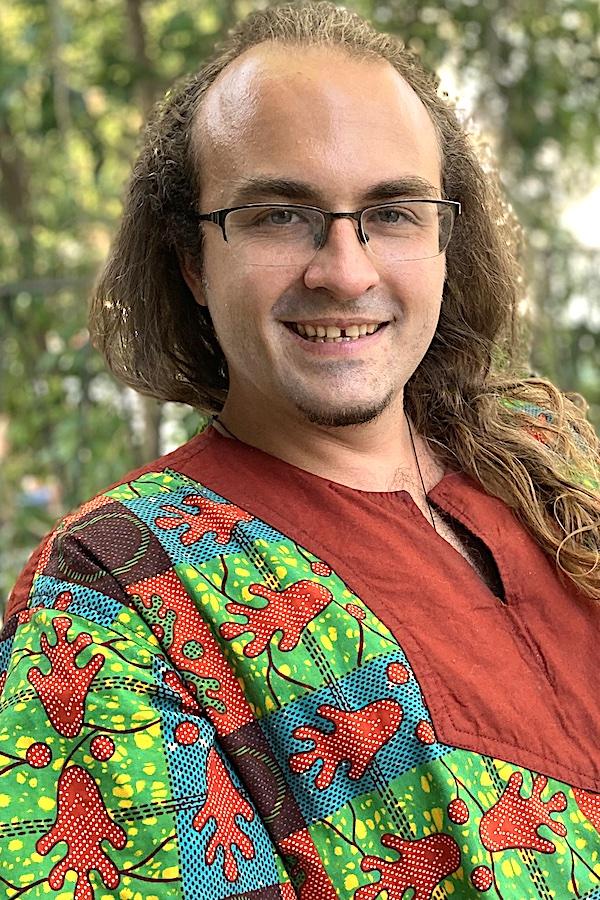Richard Prins

Photo by Isha Racho
Bio
Richard Prins is a lifelong New Yorker who has lived, worked, studied, and recorded music in Dar es Salaam. He is currently completing an MFA degree in literary translation at Queens College, where he teaches creative and expository writing. His poems have appeared in dozens of journals like Gulf Coast, jubilat, Ploughshares, and his essays have received "Notable" mentions in Best American Essays and Best American Travel Writing. His translations can be found in several literary journals and No Edges: Swahili Stories (Two Lines Press 2023), the first collection of Swahili fiction to be published in English translation. He also received a 2023 PEN/Heim Translation Fund Grant.
Project Description
To support the translation from the Swahili of the novel Walenisi by Kenyan writer Katama Mkangi. Walenisi is an allegorical narrative that reinterprets historical events in Kenya during the Kenyatta and Moi regimes. It opens with the protagonist, Dzombo, who is sentenced to death for "talking too much" in a dystopian society where public executions involve shoving the guilty parties inside a rocket and blasting them into space. Instead of exploding like those executed before him, Dzombo miraculously pilots the vessel through an asteroid belt of allegorical maladies.
I am honored to receive a translation fellowship from the National Endowment for the Arts, especially because it is the first such fellowship bestowed on a translation from Swahili, a language with an estimated 100 million speakers and a rich literary tradition that remains woefully undertranslated. I am also profoundly grateful that this honor has gone to a text as courageous and speculative as Katama Mkangi's Africanfuturist novel Walenisi.
I first read Walenisi as an undergraduate student, still in the beginning stages of learning the language. I struggled mightily to understand this infamously difficult book, with its idiosyncratic syntax, audacious neologisms, and cryptic layers of metaphor (Swahili did not have a preexisting sci-fi aesthetic; Mkangi had to build his own). Yet it was clear to me that, beneath my incomprehension, I was encountering a vision as bold and revelatory as it was peculiar. Fifteen years passed before I reread the novel, when I translated the first chapter for No Edges: Swahili Stories (Two Lines Press 2023). Up to that point, I had only translated poetry and songs. In all honesty, I did not think I would find prose as compelling to work with, but the sheer inventiveness of Mkangi's writing proved me wrong.
About Katama Mkangi
Katama Mkangi (1944 - 2004) was a Kenyan novelist, activist, and sociologist, and was a lecturer in the Department of Sociology at the University of Nairobi. In the 1980s, he was imprisoned for two years without trial for his association with the pro-democratic Mwakenya Movement. This history helps explain why Walenisi takes up the time-honored tradition of satirizing authoritarian regimes under the guise of allegory and science fiction. Although he worked as an academic sociologist for most of his life, Mkangi is best known for his novels, Ukiwa (1975), Mafuta (1984), and Walenisi (1995), for which he has been described as “the founder of the 'new' novel in Kenya.”

